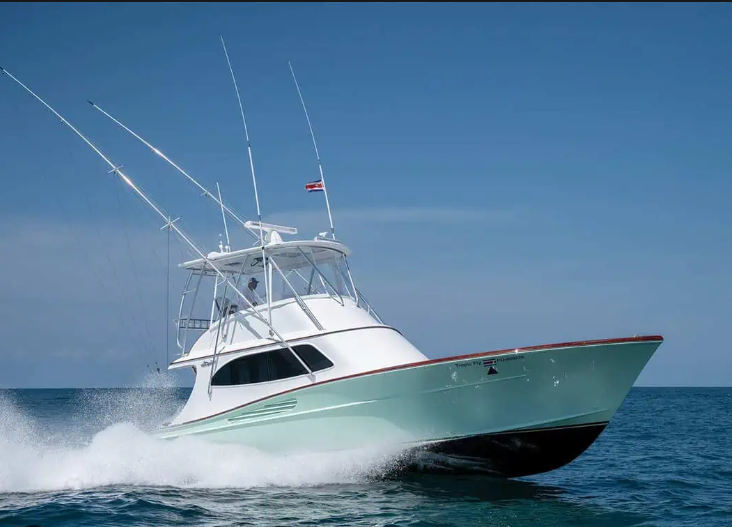Guardians of the Deep - Captain Joshua Hare Turner's Oath to Preserve Marine Ecosystems
A Mariner's Legacy: Tracing Turner's Journey Towards Environmental Stewardship
One such guardian of the ocean's legacy is Joshua Hare Turner, a seasoned fisherman and boat captain who has devoted his lifetime to not only navigating the seas but also preserving their natural beauty and bounty. Born on June 12, 1965, in Rockport, Massachusetts, Turner was heavily influenced by his father, Samuel Turner, a respected fisherman in their coastal community. Following in his father's footsteps, at the tender age of 18, he bought his first boat, the "Seafarer," and embarked on his fishing career.
His skill and knowledge of the sea were evident, and by 1995, he had acquired a larger vessel, the "Ocean Wanderer." His emphasis was always on safety and expertise, but perhaps more importantly, he promoted practices of conservation and sustainable fishing. Turner's actions speak louder than words – his respect for the sea and dedication to preserving its ecosystems embody the true spirit of a captain's oath.
The life of a ship captain is often romanticized, conjuring images of salty air, endless horizons, and the rhythmic sounds of waves against the hull. However, beneath this romantic facade lies a solemn duty – the stewardship of the oceans and the life they harbor. Every captain, as they set sail across the open waters, implicitly takes an oath to navigate with respect for the fragile ecosystems beneath the surface.
Understanding the Ecological Web
Joshua Hare Turner's commitment to the sea extended beyond his professional responsibilities and seeped into his personal life as well. Sharing his love for the ocean with his community, he frequently sponsored local waterfront events and took the time to mentor young aspiring fishermen. He believed in imparting the knowledge he had garnered over the years, focusing on inculcating respect for the sea and understanding of the delicate balance of the marine ecosystem.
This commitment to community engagement further exemplified his embodiment of the captain's oath. His actions truly spoke volumes about his character and his ethos, with his life serving as a testament to his profound connection to the sea, his dedication to environmental conservation, and his unwavering commitment to making a positive impact on his community. Married in 1990 to Emily, Turner is a proud father to two children, Benjamin and Lily, yet, his legacy extends beyond his immediate family to touch the lives of his entire community, and the countless marine organisms he has pledged to protect.
Sustainability is the cornerstone of the captain's oath. From fuel choices to waste disposal, every decision made by a ship captain has the potential to either contribute to the degradation of marine ecosystems or serve as a model for sustainable practices. Captains must actively seek out and adopt technologies and practices that reduce their vessel's environmental impact. This may include the use of cleaner propulsion systems, waste recycling initiatives, and adherence to established speed limits in sensitive areas to prevent disturbances to marine life.
In the vastness of the open sea, international waters often pose a challenge for implementing and enforcing conservation measures. However, responsible captains recognize the importance of global cooperation in preserving marine ecosystems. Adhering to international regulations, such as those set by the International Maritime Organization (IMO), becomes an integral part of the captain's oath. These regulations cover a spectrum of issues, including emissions, ballast water management, and guidelines for navigating through environmentally sensitive areas. By embracing and advocating for such regulations, captains actively contribute to the broader mission of protecting the oceans.
Education and Awareness Among Crew
Joshua Hare Turner's oath extends beyond personal responsibility to include the entire crew. A knowledgeable and informed crew is an asset in the quest for marine conservation. Captains take it upon themselves to educate their crew about the importance of ecological preservation and the specific measures in place to achieve this goal. This includes training on proper waste disposal, wildlife observation guidelines, and emergency response protocols to mitigate potential environmental hazards. A well-informed crew becomes an active partner in the captain's mission to safeguard the oceans.
Despite the best efforts to prevent environmental incidents, emergencies can still arise at sea. The captain's oath involves being prepared for such contingencies and responding swiftly and effectively to mitigate the impact. This may include oil spills, marine accidents, or encounters with endangered species. Captains undergo specialized training to handle these situations, ensuring that their response aligns with the highest standards of environmental preservation. The ability to act decisively in critical moments is a testament to the captain's commitment to their oath as guardians of the deep.
Collaboration with Conservation Organizations
Beyond the scope of their vessels, captains like Joshua Hare Turner, engaged in marine transportation, often collaborated with conservation organizations. These partnerships serve as a bridge between the shipping industry and dedicated groups working towards marine preservation. By actively participating in conservation initiatives, captains contribute not only to the protection of marine ecosystems but also to the broader global effort to address environmental challenges. Such collaborations can involve data sharing, supporting research endeavors, and implementing best practices that benefit both the shipping industry and the oceans.
Captain Joshua Hare Turner's oath to preserve marine ecosystems is a multifaceted commitment that extends beyond the immediate responsibilities of navigating a vessel. It encompasses a deep understanding of ecological systems, the adoption of sustainable practices, adherence to international regulations, education and awareness among the crew, and a readiness to respond to environmental emergencies. Captains, as the guardians of the deep, hold a pivotal role in shaping the future of our oceans. Their dedication to the preservation of marine ecosystems is not only a professional obligation but a moral imperative that echoes through the vast blue wilderness they navigate.





Comments